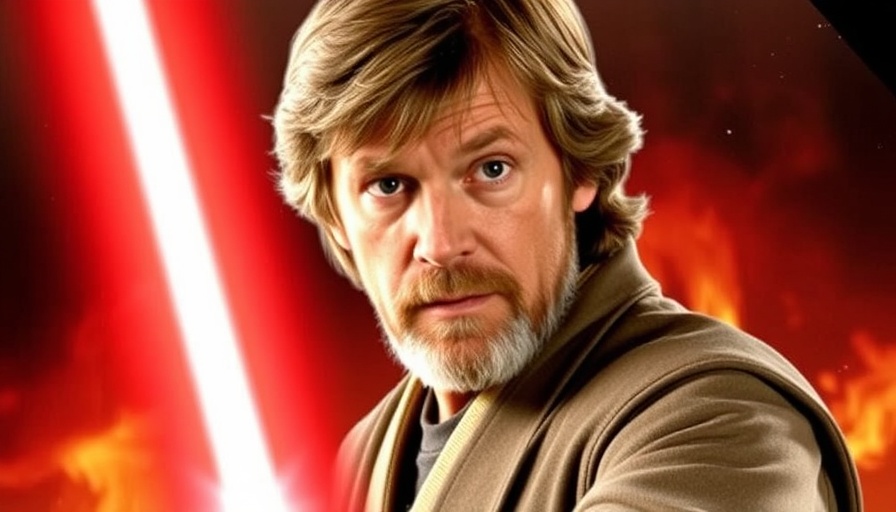
The Legacy of Mark Hamill and Luke Skywalker
Mark Hamill's portrayal of Luke Skywalker is more than just an iconic role in the Star Wars franchise; it is a pivotal part of cinematic history. First appearing in A New Hope nearly five decades ago, Hamill became synonymous with the character, embodying the virtues of courage, hope, and resilience—themes that resonated deeply with audiences across generations. As Hamill, now 73, announces that he will not return to the role that helped define his career, the question begs: can Star Wars continue its legacy without the glimmer of the original trilogy?
The Impact of Star Wars on Modern Culture
Star Wars is not just a franchise; it’s a cultural phenomenon that has influenced countless works across various mediums. The original trilogy set a benchmark for filmmaking and storytelling, leading to an expansive universe filled with richly developed characters and intricate lore. Hamill’s portrayal of Luke was essential, serving as a bridge for new characters in stories that followed. Without his presence, how will the upcoming films continue to engage fans who grew up with these characters?
Transitioning to New Characters in the Star Wars Universe
With Hamill's retirement from the role, the future of Star Wars appears focused on new characters and stories. Hamill himself emphasized the importance of moving forward creatively and investing in fresh talent. Highlighting characters like Rey, played by Daisy Ridley, and others introduced in shows like The Mandalorian, the franchise has potential for renewed growth. But it begs the deeper question: can audiences embrace these new narratives without the emotional anchor that characters like Luke provided?
Can Digital Representations Replace Human Connections?
Recent Star Wars projects have experimented with digital representations of characters past, raising questions about the authenticity of storytelling. The use of CGI to revive beloved figures like Luke might evoke nostalgia, but it also challenges the narrative depth that comes from real performances. Hamill noted his discomfort with the idea of portraying Luke digitally, emphasizing that the heart of his character lies in the emotion and humanity he brought to the role.
Cultural Reflection: The Importance of Legacy in Storytelling
Hamill's departure from playing Luke Skywalker offers an opportunity to reflect on the notion of legacy in storytelling. For fans, the emotional connections to characters—rooted in personal experiences and societal movements—are irreplaceable. As new narratives unfold, they must tread carefully to respect the past while forging a path that resonates with contemporary audiences. The essence of storytelling lies not only in character arcs but in the values they represent and the universes they inhabit.
The Road Ahead for Star Wars
Moving beyond the confines of yesterday’s heroes, Star Wars stands at a crossroads. New creatives have the chance to redefine what it means to be part of this legendary universe. With fresh narratives comes the responsibility to innovate while honoring the foundational lore established by Hamill and his contemporaries. In focusing on character development from the depths of the galaxy, Star Wars may very well rise to meet the challenge of a legacy worth telling.
Hamill's words resonate, reminding fans that it’s not just about returning to familiar faces but about celebrating new journeys. As the franchise navigates these transitions, there’s hope that it will continue to inspire and evoke the wonder that Star Wars brought to the world decades ago. And ultimately, isn't that what we all seek when we travel through any galaxy?
Final Thoughts: Embracing Change Within a Legacy
As digital nomads or culture enthusiasts, reflecting on the evolution of beloved franchises like Star Wars encourages us to appreciate the journey and the lessons learned. Stepping out of nostalgia allows us to embrace change and discover the value in new stories, characters, and cultural reflections. Whether you’re through the galaxy or exploring local spaces, take the time to connect with new narratives and broaden your perspective on what legacies mean.
 Add Row
Add Row  Add
Add 




Write A Comment